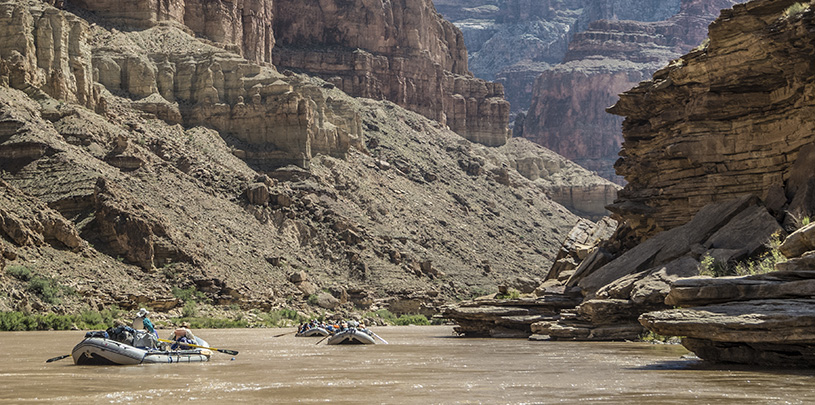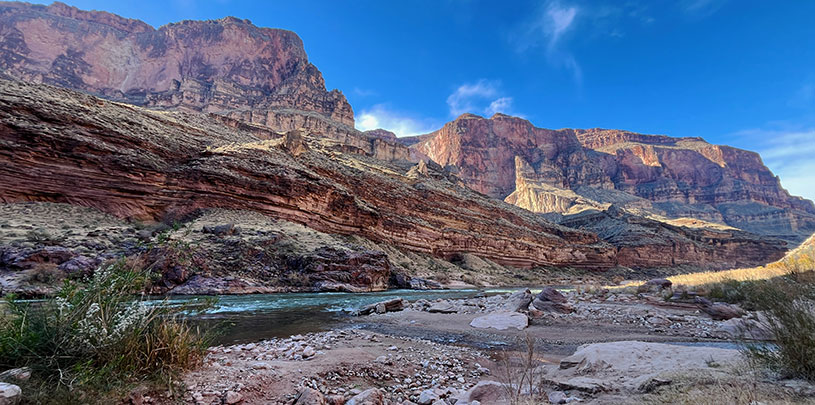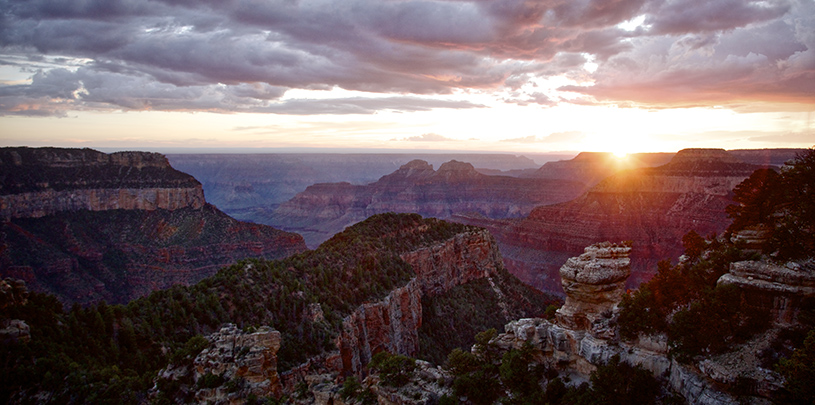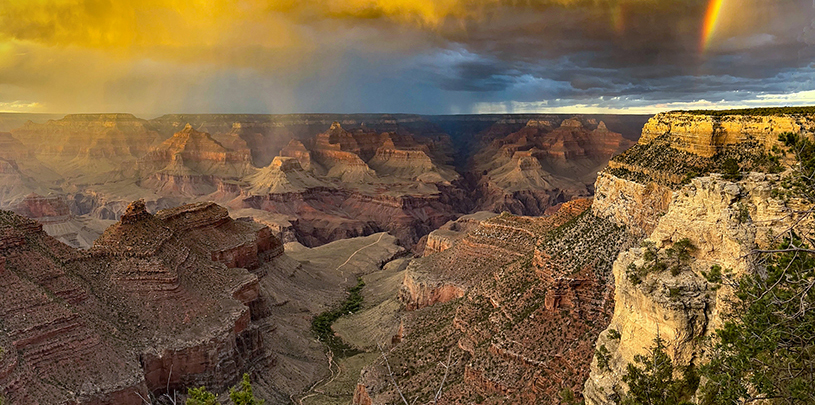 by Sarana Riggs, Volunteer Community Organizer, Save the Confluence
by Sarana Riggs, Volunteer Community Organizer, Save the Confluence
Note: This article originally appeared in the fall 2016 issue of Boatman’s Quarterly Review, a publication of Grand Canyon River Guides.
As I’m sitting here thinking of the Grand Canyon Escalade development, I can’t help but think of my first river trip during the 2015 Guides Training Seminar. I remember feeling nervous and my thoughts were constantly thinking of what to pack, what will the weather/temperature be like? And what am I going to say to these guides in the two weeks that I will be with them? Will I have to talk continuously or is there a scheduled time to talk during the days? Little did I realize that these thoughts would not matter once I was in the Canyon. As the launch day approached and then came, my nervousness grew more intense. It was a whirlwind of activity at the launch site. There were introductions, instructions, packing personal gear into dry bags, and then finally finding which raft or rig to get on. As we left the busy, congested world we were now surrounded by the lapping of the water, the birds flying to and fro, and the occasional small talk on various boats. Eventually the walls became taller and it was apparent there was no turning back.
It was in the next couple of days that I finally got into the groove of the day—wake up, pack, eat, load things onto the boats, and head out. Each day was a different experience the deeper we went down in the layers of time. It became apparent that life has lived here from the beginning of time, from our present day ancestors to small microorganisms. Life had lived here, it made a home, it ate, hunted, planted, it gave life, and it eventually returned back to the Canyon at the end of its life cycle.
Life had endured here for millions of years and throughout this two week river trip I can see why this particular place was chosen. To be protected by the walls of time, change with the flow of the water and the harsh seasons, it is where life was fragile, enduring and yet strong. To witness all the wildlife which made the Canyon its home was heard, seen and felt with all your senses. Your soul and heart will forever be changed and I can understand why river guides yearn to return every year. This place is captivating.
We now go to the present and reflect on our brief time here with the Canyon. It is apparent on how destructive we are as living organisms to take that all away. We have drilled for dangerous but precious minerals which supply our energy demand; we have pumped what water we could to sustain our everyday needs, without consideration of other living organisms which rely on this precious liquid. We have constructed structures which would bring an ever increasing amount of people to the Canyon in the name of economic development and prosperity. And it is with this progressive thinking that we have forgotten the beauty of the Canyon and those who have called this place home and revered in spirituality by many Indigenous Nations. It is from these Nations that Save the Confluence (STC) has emerged. We have emerged as others before us from this Canyon to protect, conserve, and preserve the balance of the past and ever changing future from threats like the Grand Canyon Escalade. This proposed resort with a gondola, and riverwalk would scar and alter the landscape of Grand Canyon. For six years we have been toe to toe with these developers and will not back down! We will remain to protect this place which we all have come to love, like those before us in histories past. We urge you to remain strong and vigilant with us in this fight and help us educate others to protect this magnificent place. How? Email us at getinvolved@savetheconfluence.com or visit our website to sign the petition.




